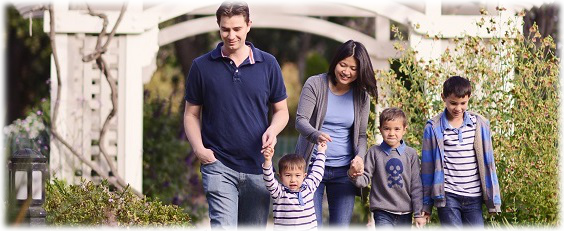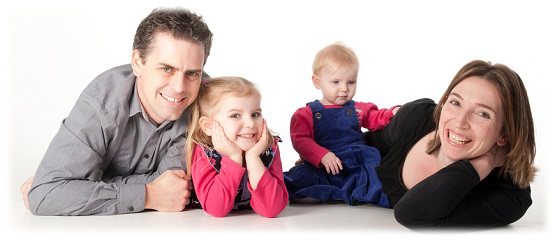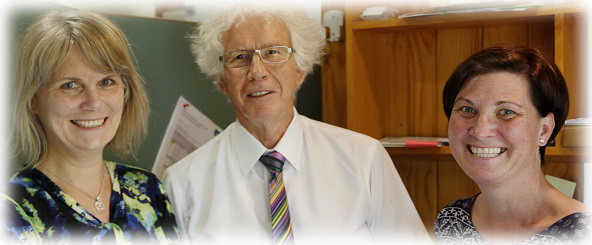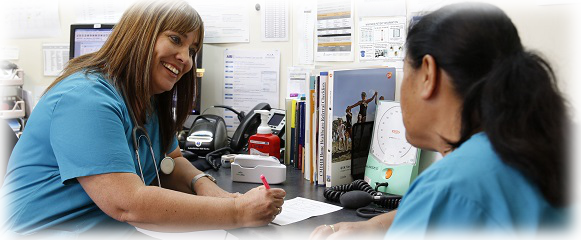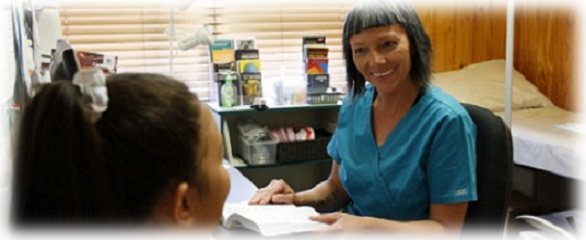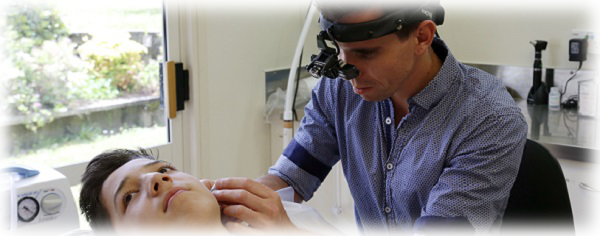September Newsletter
2013
Welcome again to the Millhouse Community and other readers,
This newsletter highlights current events at the Millhouse Integrative Medical Centre and commences a discussion on supportive nutritional and lifestyle changes for the prevention and treatment of cancer.
Walk-Ins
Since we inaugurated the 'Triage Nurse' service to prioritise the urgency of patient medical problems, we are having more folk, who have not made an appointment, 'walking-in' expecting to be seen. The appointment system is there so you can see your doctor at a time of your convenience. If you do present as a walk-in, please don't be offended if we ask you to return at a later time to be seen.
>>>Learn more about this...
Medical Emergencies
However if you present with a medical emergency we will see you. The triage nurse will assess the urgency of your problem and then either your doctor or another member of the medical team will treat you
Our priority is that all patients are seen by their doctor within 10-15 min of their appointment time, unless an extenuating situation, like a medical emergency, occurs
Trouble-shooting E-appointment
sRemember to use this easy and convenient way to book an appointment. To be successful you need to use your first true name (not a shortened name, middle name or an English name used instead of your Asian name; use the name given to reception when you registered), your own email address and mobile phone number which must be different from other family members. This has been the biggest reason for e-appointment failure
You can book for a family member on line using your password but it will be in your name so leave a message on the appointment screen saying who it is for and inform reception on arrival.
Don't hesitate to contact us if you are having problems with e-appointments and we will investigate promptly.
To make an ebooking (top or bottom) at www.millhousemedical.co.nz you will be taken to the ConnectMed host site where you can select your doctor and an appointment time. At your first visit you will have to register and select a password before proceeding further. Give it a go.
>>>Learn more about this...
.
Website feedback questionnaire
We are endeavouring to have a feedback e-questionnaire up and running shortly so you can inform us how we can improve our service to you.
In this issue...
Walk-Ins and Triage
Medical Emergencies
Trouble-Shooting the Online Appointment System
Doctors Away
This month Dr Ric writes about
Lifestyle Aspects of
Facing Up to Cancer
Dr Ric writes:
Morbidity Compression – active long life with less disease
I am amazed when I consider how a single cell created from mother's egg and father's sperm develops into 50 trillion cells that collaborate in a remarkably-organised community that provides the energy, mobility and security for humans to function. Throughout life we undergo 10,000 trillion cell divisions, but slowly lose the ability to photocopy each cell, and so become susceptible to disease. Our aim is to help you live long and actively and to delay chronic illness (morbidity) until the last decade of life; this is referred to as Morbidity Compression.
The New Zealand life expectancy table opposite shows that in the early 1900s we lived about 60 years but with improved health strategies (water & sewage treatment, better food, quality housing and healthcare), we now average 82.7 years for females and 78.8 years for males
.If the graph's projected life expectancy is correct, future generations may average only a few more years of living
Millennia later in 1992 Professor Arthur Aufderheide studying preserved mummies of the Chiribaya tribe on the southern tip of Peru, examined that of a young woman over a thousand years old who had a 'hard bulbous mass on her left arm. This was a preserved malignant bone tumour.
Indigenous communities in recent times have been shown to develop cancers for the first time. In the December 2012 newsletter I discussed the observations of Doctor Otto Schaffer who studied the Canadian Inuit where Westernisation proceeded unevenly across the Arctic circle. As the Inuit changed their food source from mostly wild game to highly refined processed foods, they began suffering from Western diseases and Schaffer observed the first cases of breast, cervix and colon cancer. His observations suggest cancer is a lifestyle disease.
After the Diagnosis of Cancer:
This will herald one of the most stressful times in your life.
Take a partner, spouse or friend for support when you visit your doctor or cancer specialist.
• Develop a good relationship with them. Don't be afraid to ask questions and write them down before you see the specialist.
Consider asking -
• Is my cancer slow growing or aggressive?
• Has it spread beyond the local organ area?
• What treatment possibilities are offered? How successful are they and what are the likely complications?
• Are there strategies that I could use to make treatment (surgery, radiation & chemotherapy) more successful and reduce side effects?
Encourage the specialist to be more personal by asking:
• What would you do if you had my cancer?
• What would you do if your mother or father had this cancer?
Read your biopsy & scan reports and other relevant information.
Don't be afraid to obtain a second opinion. Rarely do you need to make a decision in haste.
This is a lonely journey so gather the support and prayers of your family and friends.
Cancer is an attempt to obtain immortality
Cancer is a non-specific name given to the many diseases of uncontrolled cell growth arising from any part of the body
.Cancer is an abnormal healing response of cells trying to survive and grow in a harmful environment created from the toxic influences of viruses, bacteria, radiation, chemicals (especially cigarette smoke & excess alcohol), and low oxygen states. A poor diet, nutritional deficiencies, diabetes, abnormal hormone levels, stress, poor sleep and lack of exercise compound the toxicity leading to a noxious inflammatory state
This poisonous cellular milieu adversely affects the genes (which contain the DNA messages that program cell function) responsible for cell growth (proto-oncogenes) and through a number of adverse changes they mutate into cancer causing oncogenes. For this to proceed, tumour suppressor genes that promote normal cell death must lose their influence, either from an inherited defect or through noxious mutation change. The loss of the gene control mechanisms allows cells to uncontrollably multiply and survive as they attempt to obtain immortality. In the laboratory cancer cells have been observed to grow continually for more than thirty years.
Individual cancers may have more than 50 gene mutations of which 10 may be highly significant. In the last twenty years scientist studying the oncogene influences of particular cancers have developed very expensive drugs that target cell growth. Glivec for leukaemia and Herceptin for breast cancer have been successful in controlling cancer growth.
Cancer Treatment
Recently I began reading Professor Siddhartha Mukherjee's Pulitzer Prize winning book, 'The Emperor of all Maladies' , which brilliantly explores the history of cancer therapy to the present day.
One hundred years ago doctors were impotent in treating progressive cancer. The onset of the 20th century brought a renaissance in chemistry with the development of nitrogen compounds which included mustard gas, used for chemical warfare, and known to destroy the bone marrow and kill white blood cells. Similar molecules were synthesised and used to treat cancer and later toxic chemicals derived from plants were tested. Through trial and error, initially with leukaemia, then lymphomas and other cancers, doctors learned what was most effective.
Treatments were brutal and many died untimely deaths, but doctors observed that a cocktail of anti-cancer medicines given in the early stages of cancer were the most effective. This was improved further when local radiotherapy and targeted medicines were added to treat specific cancers. Surgery had limited success in treating aggressive cancer and horrific operations were undertaken, especially for breast cancer. Increasing pressure from women activists, concerned about radical breast surgery finally led to a coordinated trial by Dr Bernard Fischer, which was published in 1981, showing that simple mastectomy was equally effective.
Caring and Cancer
In the USA, it was estimated that over the years 500,000 women had undergone unnecessary radical mastectomy operations and many more had suffered around the world. Sadly, despite the huge resources that had been poured into the 'War on Cancer' and the numerous trials performed, cancer survival had not improved. During this period an increasing dissenting voice was heard that recognised the suffering and pain of cancer patients. This was the birth of palliative care medicine (for Millhouse patients, provided by the medical team at South Auckland Hospice) that advocated that cancer patients should live and die in dignity and receive relief from pain and suffering.
Integrate all Therapies
Prevention is best so please consider adopting a healthy lifestyle. Undertaking regular screening enables early detection and successful treatment of the cancer.
Progressive cancer is difficult to eradicate but you can live with the disease for a long periods using a cocktail of conventional and natural therapies. I will discuss this in the following newsletters.
Strategies for Cancer Prevention and Treatment
Prevention
Remove all toxic sources
• Cigarette smoking, excess alcohol
• Chemicals – pesticides, occupational heavy metals
• Infection – teeth, gastrointestinal tract, prostate
• Emotional turmoil & hopelessness
Adopt a Protective lifestyle
Diet is most important.
EAT a variety dark coloured vegetable & fruits rich in phytochemical substances with anticancer properties.
PREFER eating fish & lean meats. Limit BBQ foods.
CONSUME spices – especially turmeric, ginger, cayenne, black cumin, garlic and others.
STOP all refined carbohydrates, sugars & fruit juices.
AVOID trans fatty acid in margarines & processed foods.
• Maintain an ideal weight.
• Exercise - at least do some but intense interval training is best.
• Obtain Vitamin D from sunlight or supplement (don't get burnt)
• Sleep well
• Relax, be happy, make friends & enjoy life.
REMEMBER YOU ONLY LIVE ONCE
Participate in regular cancer screening
• Know your family history of cancer – breast, bowel & prostate are common
• Bowel - occult blood testing and/or colonoscopy
• Breast - mammogram, ultrasound or thermography if preferred
• Cervix - cervical smear, remember Gardasil HPV protective vaccination for teenagers.
• Lung - chest X-ray if at risk
• Ovarian - blood Ca125 test & ultrasound
• Prostate - blood PSA & digital exam
• Skin - regular checks for melanoma & skin cancer
• FOR diabetes, low thyroid & high blood iron levels.
Cancer Therapy
• Use every approach you can to treat cancer both conventional & naturopathic.
• Commence a nutritional programme as soon as possible after diagnosis.
• Consider using a cocktail of supportive supplements, herbs & spices.
• Take Vitamin D.
Surgery
• Aims to remove the entire cancer and local lymph nodes to see if the cancer has spread.
Radiotherapy & chemotherapy
• Can be used as the prime cancer treatment or as a supportive treatment with surgery.
• Ask your specialist about the effectiveness and complications of the proposed treatment.
Yours in good health
Dr Richard J Coleman
www.millhousemedical.co.nz
Life-Style Strategies
Know your risk
What diseases do your parents and relative have?
Be Proactive
Monitoz blood pressure
Check blood cholesterol, hba1c2013_SEPT_CANCER_1.pdf (diabetes), B12 & folate, iron, PSA (males), cervical smear & mammogram (females)
Avoid toxic influences
Smoking, excess alcohol, toxic chemicals
Eat healthy food and use spices
Adopt the Mediterranean Diet with no/low refined carbohydrates
Lots of spices, garlic, cinnamon, turmeric, ginger etc
Keep ideal weight
Eat less, don't get overweight
Exercise
Some is better than none, vigorous interval training is best
Enjoy sunlight Vitamin D
Spend time in the sun or supplement
Live at peace
Sleep soundly, meditate, use prayer, mindfulness, be happy
Don't live in abusive relationships
Give
Do something for others

